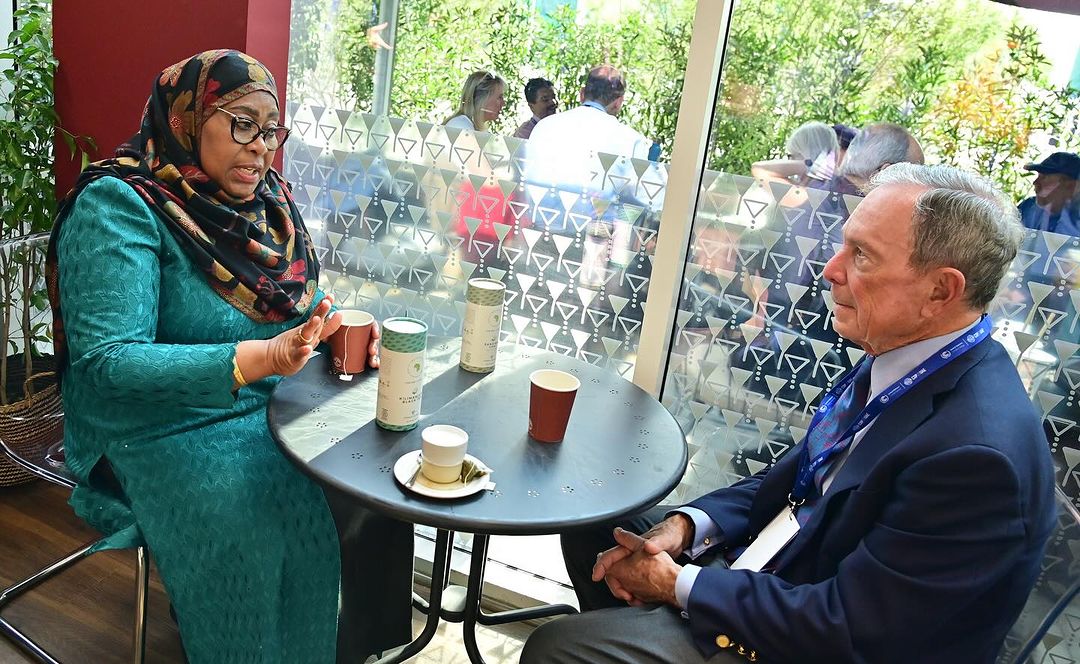Kilimokwanza.org Reporter
For years, Tanzanian tea traders and producers faced the challenge of participating in the Mombasa Tea Auction in Kenya, which, being the largest of its kind in the world, came with high logistical and operational costs. This reliance on an external auction platform meant increased expenses for Tanzanian stakeholders, affecting the overall competitiveness and profitability of the tea sector.
Recognizing this, the Tanzanian government, under President Dr Samia Suluhu Hassan’s adept leadership, sought to establish a local alternative that would not only retain more value within the country but also foster a more vibrant and self-sufficient tea industry. The Minister of Agriculture, Hussein Bashe, tasked the Tea Board of Tanzania (TBT), Director General, Ms. Mary Kapeja, to make it happen despite many challenges, including external and internal interference from those who benefited most from not having a local auction.
The Dar es Salaam Tea Auction officially opened its doors on November 13, 2023, introducing a platform meticulously planned to meet the specific needs of the Tanzanian tea industry. In its initial auction, the event saw an impressive turnout, with 624,708 tonnes of tea being put up for auction and 417,865 tonnes successfully sold, translating to a remarkable success rate of 67%. This immediate impact underscored the auction’s potential to significantly transform the local tea trade landscape.
Ms. Kipeja outlined several key benefits of the auction: it promotes clarity in tea trading, enhances the financial well-being of tea cultivators, and boosts governmental revenues through the strategic use of the Tanga and Dar es Salaam ports. The auction is also expected to increase employment for many, including those involved in farming and the broader tea value chain.
“Tanzanian tea possesses a unique allure, unmatched globally, primarily due to its distinctive natural hue,” stated Angelina Ngalula, Chairperson of the TPSF, underscoring the international acclaim for Tanzanian tea. This appeal, she noted, has led to its popularity for blending in international markets, enhancing the color of various tea products. Speaking at Tanzania’s first International Tea Auction, Ngalula advocated for the preservation and pride of Tanzania’s superior tea quality, a sentiment reflecting a shift from the previous auctions held in Kenya. “Protecting our tea and recognizing its high quality is paramount,” she insisted.
This auction was a significant milestone under President Dr. Samia’s leadership, heralding a new era for the East African nation’s tea industry, promising a future filled with prosperity and growth. The establishment of the auction in Dar es Salaam, Tanzania’s bustling commercial capital, is a show of President Hassan’s commitment to bolstering the nation’s economy and reducing operational costs for local businesses.
The establishment of the Dar es Salaam Tea Auction is anticipated to have profound economic and social implications. Economically, it is expected to reduce the costs associated with exporting tea, such as transportation and brokerage fees, previously incurred due to reliance on the Mombasa Tea Auction. By localizing the auction process, Tanzanian tea producers can enjoy higher margins and reinvest more into their businesses and communities.
Socially, the auction is set to contribute to job creation, both directly and indirectly. The need for a skilled workforce to manage and operate the auction, along with increased activity in related sectors such as logistics, warehousing, and finance, will likely spur employment opportunities. Moreover, with a more profitable tea industry, there is potential for enhanced community development projects, funded by the increased revenues, aimed at improving education, healthcare, and infrastructure within tea-growing regions.
While the launch of the Dar es Salaam Tea Auction is a monumental achievement, it also presents a set of challenges and opportunities. One of the immediate challenges is the need for continuous improvement and adaptation of the auction system to ensure it remains competitive and attractive to both local and international buyers. Furthermore, there’s an opportunity to leverage technology to streamline operations, enhance transparency, and expand the auction’s reach beyond national borders, potentially attracting more buyers and sellers from across the globe.
Another area of opportunity lies in sustainability and environmental conservation. With the global shift towards sustainable and ethically sourced products, the Tanzanian tea industry, bolstered by the local auction, has a unique chance to position itself as a leader in sustainable tea production. By implementing and promoting sustainable practices, Tanzania can appeal to a broader market segment, further driving growth and profitability.
The inauguration of the Dar es Salaam Tea Auction under President Samia’s leadership is a bold step towards economic independence and sectoral growth for Tanzania. It represents a significant shift in how the tea industry operates, promising reduced costs, enhanced profitability, and greater economic contributions. As the auction continues to evolve and adapt, it stands as a beacon of innovation and progress for Tanzania and the East African region as a whole.
